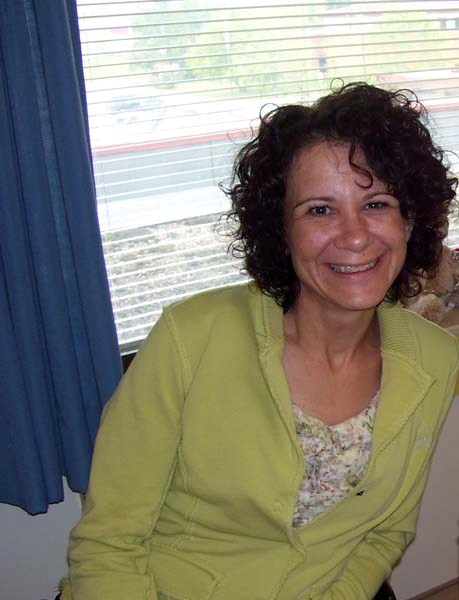Roxanne Ulanicki is many things. She is the granddaughter of homesteaders, an athlete, an advocate, and a dancer. On April 4, she will be honoured on Global News as a Woman of Vision.
Ulanicki credits her grandparents and their pioneering spirit, her family and their unwavering support, and her community of LaCorey with giving her the strength and confidence that allowed her to take what many would see as limitations and turn them into something else. She was born with spina bifida, an incomplete development of the spinal cord before birth, which causes paralysis, and she now relies on a wheelchair for mobility.
"My family never treated me like I was different," Ulanicki said. "I have a right. I'm a Canadian, I was born and raised here. I have a right to housing, a right to employment. I grew up feeling that way because I was always treated like I was just as valuable as my sister or my cousins or anyone else."
Despite her disability, Ulanicki thrived in school. She earned good grades and never saw herself as being any less able than other students.
"They never really looked at what I couldn't do as much as what I could," she said. "They focused on what my abilities were rather than what they weren't."
She also credits growing up in a rural, isolated community with helping her develop some of her strength and her ability to approach challenges with a creative spirit those in more urban centres didn't have the opportunity or need to develop.
She would need all that strength, confidence, and creativity when she left her childhood home and moved to Edmonton, where Ulanicki experienced true barriers for the first time. She was marginalized at work, unable to find accessible housing, and for the first time, treated like she was less capable.
It took 20 years for Ulanicki to find accessible housing. "I was wasting a lot of energy crawling in and out of bathrooms and up and down out of cupboards in my kitchen," she explained. "It left me with less energy to do fun things in life.
"Canada doesn't really do much for people with disabilities except making retail locations accessible," she added. "But it's pretty hard to spend your money when you can't make it."
Ulanicki has travelled internationally with the national wheelchair basketball team, placing fourth at the 1988 Seoul Paralympics, and the experience opened her eyes to how those with disabilities could and should be treated at home. She visited hotels and resorts that were barrier-free in ways that only someone used to barriers would notice.
"Why can't we do that here at home?" she asked. Instead, here there are only ugly ramps on the front of buildings, afterthoughts, she added.
After medical retirement at 36, she grew angry, and turned that anger into a passion for advocacy that has seen her defending those with disabilities and fighting for their rights, starting with accessible housing.
She cannot change the world and the country's marginalization of people with disabilities alone, however, and urges others in similar situations to do what they can to move towards an inclusive society.
"If you want to be included, you first need to include yourself, not wait for someone else to include you," she said. "If you live in a small community like LaCorey or Bonnyville, they're not going to have specialized dance classes for people with disabilities. I would love for people with disabilities to ask to be included in regular programming. It can easily be adapted ... It's not a dance instructor's job to know how to include somebody with a disability, that's my job. I'm the one with the disability, it's my responsibility to include myself."
Ulanicki's advocacy was essential in the development of the Adult Spina Bifida clinic at Glenrose Hospital. She has spoken at various functions and was featured in Avenue magazine. She was a nominee at the 25th Annual Tribute to Women of Distinction in Edmonton.
Of all the things she has accomplished, Ulanicki is most proud of the progress she has made with iDANCE, a program she co-founded in 2009 integrating dancers with and without disabilities. They were awarded the New and Emerging Group Award from the John Humphrey Centre for Peace and Human Rights at the Alberta Human Rights Awards.
"I'm most proud of the things you don't see," she said. "We have some dancers in our class who have severe health issues and I just burst with pride when I see the progress and the growth they've managed to have through iDANCE. It has improved the quality of their lives by having somewhere to go where they're actually valued for the skills that they have, rather than told what they don't."
In the future, Ulanicki would love to travel across Canada with iDANCE. "Especially rural communities," she added, "to promote integration and inclusion in all the programming. It's sort of a dream. We're not quite there yet."
Roxanne Ulanicki has been many things, but on April 4, she will be celebrated for being the most important of all- a woman of vision.



